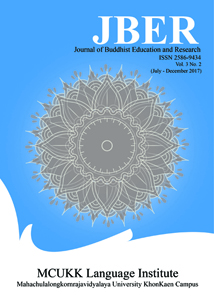Smile of Peace: Jayavarman Vii’s Conflict Resolution toward Peace and Development in Angkor Era
Keywords:
Jayavarman VII, Smile of Peace, Angkor Era, Conflict, PeaceAbstract
This academic paper is conducted to explore how Khmer great kings in the past used Buddhism as a way to conflict resolution. The paper suggests that Buddhism became the dominance religion in Cambodian after the King Jayavarman VII got the crown. Before that Khmer Empire was dominated by Hinduism and one can see the explanation through the ruined temples such as Angkor Wat temple. Throughout the discussion, the paper found that King Jayavarman VII was inspired by his second queen to support and promote Buddhism across the Kingdom. A clearevidence was the establishment of many rest houses, hospitals, schools and public workplace across the country, from North to South and from East to West direction. Another piece of proof to show that King Jayavrman VII was the pioneer of peace and unity after devastative war caused by old-arch enemy, Champa, and religious violent conflict was the construction of Angkor Thom. The four smile faces on the top of Bayon temple represents a united conflict resolution between two dominant religions, Hindu and Buddhism.
References
Trans. Susan Brown Cowin : University of Hawaii Press.
David P. Chandler.(1992) A History of Cambodia. Boulder: Westview Press.
Harris, Ian. (2005). Cambodian Buddhism: History and Practice. Honolulu: University
of Hawaii Press.
Higham, C.(2014). Early Mainland Southeast Asia. Bangkok: River Books
Co.
Ling, T. O. (1979). Buddhism. Imperialism and War: Burma and Thailand in
Modern History. London: George Allen & Unwin.
Lowman. Ian. (2009) The Savior King: Buddhist Self-Representation in
Angkorian Cambodia. Berkeley: UC Berkeley.
Thera, Nyanaponika. (1999) The Four Sublime States. Penang. Malaysia: Inward Path.
Zephir, Thierry. (1995). The Angkorian Temple-Mountain: Diversity.
Evolution. Permanence. Expedition: George All.





